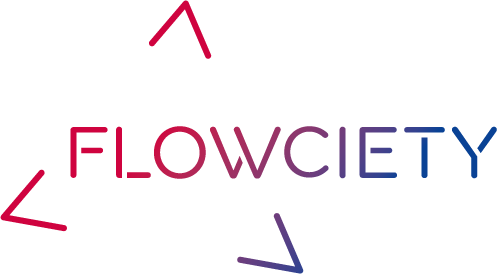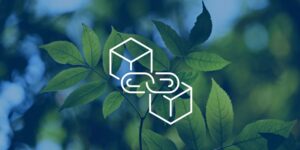The supply chain act and why you can make a profit from multiple hardships
The Supply Chain Act is here, and it’s been a long road. Some people are unhappy about it – critical voices have already been raised in advance. Especially the business community criticizes this law. Unforeseeable financial burdens, questions about technical feasibility, and anyway, how is this supposed to work?
On the other hand, 3/4 of the citizens – the consumers – see it positively (Source). And this is more than just hype. Most people have now understood sustainability in the economic, ecological and social sense and are trying to live by it. The Corona pandemic has made this much clearer to all of us, as have the environmental catastrophes in 2020 and 2021 (e.g. floods in China, forest fires in California, heavy rain and flooding in Germany, to name just a few; Sources excerpt).
The world and we on it have changed in the last years. Therefore, other values stand in the foreground than 20 years ago, sometimes perhaps from a personal development, rather due to a need, yes more even a necessity. It could not always go on like this anyway.
What challenges does the new supply chain act bring?
Accordingly, there are 2 main challenges:
First challenge is to produce the products under the basic conditions.
Documenting production under these conditions and making it traceable, preferably of course tamper-proof. At first glance, the first challenge seems to be the more difficult one. As the company concerned, I share responsibility for the working and production conditions elsewhere. Sure, there may be the “quick fix” of having the set-compliant production confirmed on paper. But then it will probably not be much more than a paper tiger, and the credibility and seriousness will decrease.
There are projects and funding for companies around the world to support this path. It will certainly be another challenge that companies have to address more due diligence in the selection and cooperation with suppliers and admittedly, this is not my area of expertise, but my absolute gratitude for these initiatives and companies that are already going this way. Going down the path with certifications could be tedious, but offers the opportunity to spread and enforce standards.
The second challenge – documentation. That’s another story, and some industries can already sing many lamentations about it. How in the world do you make sure that everyone in the world is connected (sure, the Internet) and that data flows securely from one IT system to another? After all, risk management is supposed to take place, and that only works if I have transparency and know what is happening.
Are cloud services the answer to the challenges?
One or the other might come to the topic of the cloud right away. Good idea, let’s take a look at this in a bit more detail.
We have a cloud solution (per company? overall?) where everyone simply has to log in and enter the data there.
- Consequence 1: A large load and highly designed infrastructure must be available for this, so that everyone can access it at all times.
- Consequence 2: Central also means that one person manages it, “one” has the admin password and can access everything. At the end / in case of need, who thinks evil, possibly can manipulate it.
- Consequence 3: IT already in use at the distributed companies must be connected, and this creates a security risk if the central “instance” is hacked.
- Consequence 4: If suppliers do not connect their IT directly, then they have to maintain data twice: in their IT system and on the cloud solution for the supply chain act. That gain means media disruption, double data storage and overhead to keep everything at the same level.
In sum: a few consequences that could not be solved in any other way immediately, or that bring new challenges.
"The shortage of raw materials is clearly making itself felt in our company. There's just no room for other issues."
Solution approach Blockchain - When can and when should you use the technology?
When we are in a heterogeneous environment, want to establish trust among ourselves by documenting actions between parties in a tamper-proof way. That is, in the case of a supply chain. We connect the different partners around the world through a blockchain and make sure that common processes are well documented.
- Consequence 1: The globally distributed suppliers connect to one technology, opening up a network of their customers worldwide. (Instead of many clouds for many customers with necessary double/multiple data maintenance).
- Consequence 2: The connection is secured via the blockchain. If someone wants to manipulate something, they would have to manipulate the entire network. (Instead of a single point of failure with a central operator).
- Consequence 3: Neither the affected companies nor suppliers around the world or a “neutral” entity can manipulate the entries. All relevant data is available for an incident and can be traced throughout.
- Consequence 4: Tamper-proof documentation ensures trust between the parties involved, towards an auditor (legislator) and (not to be forgotten!) towards customers. Company values and certificates are at once verifiable, traceable and thus a real asset and separate the “greenwashers” from the companies that actually want to work/produce “green”.
- Consequence 5: Data communication takes place digitally throughout (no media discontinuity) and thus offers considerable efficiency potential. Data is communicated more quickly, process steps can be automated based on this instead of being executed manually, and the overhead for documentation is eliminated.
"Do you still have battery?"
Human needs are evolving, why not our cooperation?
Basic need of the future or will everything stay the same?
So from my point of view, there are many advantages to be gained from the needs (environmental protection, shortage of raw materials, legal requirements …) with the right approach (efficiency, traceability, responsibility and accountability) and all this by working together collaboratively, accepting the diversity / heterogeneity in IT and understanding it as a strength.

We are collaborative beings, in every sense of the word. We sit together on this one world and can only work out and implement solutions together in order to continue to live (happily) on it. And it is precisely for this that the Supply Chain Act is a start, a solution, which in turn brings other problems with it. But that’s the way it is with progress and innovation (who would have thought 20 years ago that a basic human need would be to always have enough batteries?!)
So challenges create solutions. New solutions create new problems. But just talking about why something doesn’t work is only of limited help in the end.
Well, now I’ve said less crypto/tech bullshit, but perhaps more pathetic basic ideas and ideals. But they are more than just empty phrases for me. I have believed for decades in the decentralization of this world, the necessity of collaboration, data protection and confidentiality on the internet.
If you also want to make virtues out of your hardships and challenges, get in touch with us.
We are on board.





